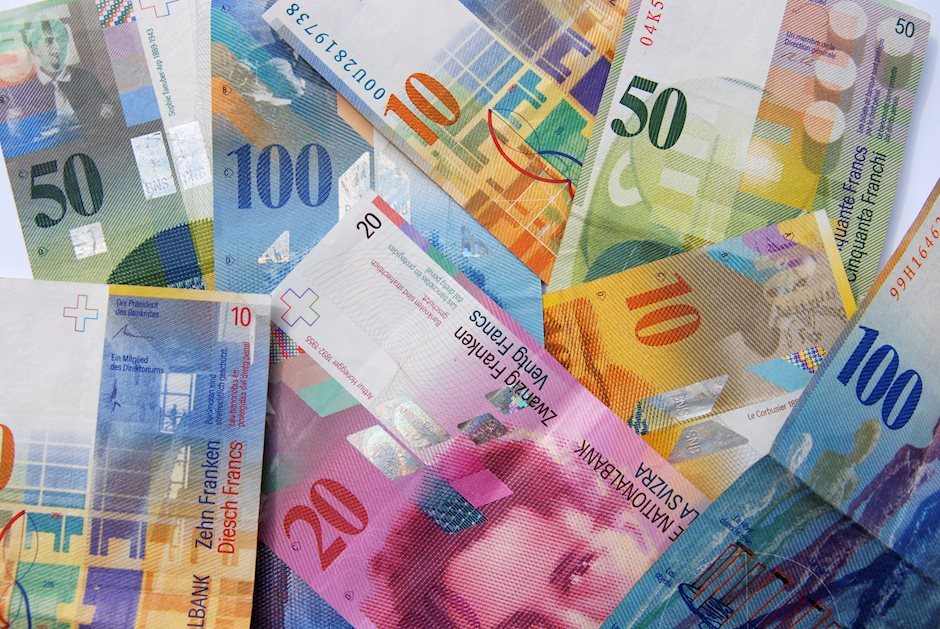USD/CHF holds positive ground above 0.8800 as US CPI data looms
- USD/CHF gains ground to near 0.8835 in Wednesday’s early European session.
- Traders raise bets on Fed rate cut this month to 86%.
- The SNB will likely cut rates by 25 bps at the December meeting on Thursday.

The USD/CHF pair trades in positive territory for the fourth consecutive day around 0.8835 during the early European session on Wednesday. The uptick of the pair is bolstered by the stronger Greenback due to the rising bets for a less dovish stance from the US Federal Reserve (Fed). Investors will keep an eye on the US November Consumer Price Index (CPI) data, which is due later on Wednesday. The attention will shift to the Swiss National Bank (SNB) interest rate decision on Thursday.
The US CPI inflation data released on Wednesday are the final major piece of data that Fed officials will consider before they meet next week to decide on interest rates. A modest increase is unlikely to deter Fed policymakers from cutting their key rate by a quarter point. The odds of a 25 basis points (bps) rate cut at the Fed's December meeting are high, with 86% of traders expecting a cut, according to the CME FedWatch tool.
On the Swiss front, the SNB is widely expected to deliver a quarter-point rate reduction to 0.75% at its December meeting on Thursday. "Market pricing may make a 25bp rate cut a slightly hawkish surprise, but we continue to see no reason - and also little chance of lasting success in terms of the exchange rate - for larger cuts given the resilient economy and stable exchange rate," said Christian Schulz, deputy chief European economist at Citi. However, he anticipates the Swiss central bank to downgrade its short-term forecasts again, adding, "The SNB's guidance will likely remain dovish."
Swiss Franc FAQs
The Swiss Franc (CHF) is Switzerland’s official currency. It is among the top ten most traded currencies globally, reaching volumes that well exceed the size of the Swiss economy. Its value is determined by the broad market sentiment, the country’s economic health or action taken by the Swiss National Bank (SNB), among other factors. Between 2011 and 2015, the Swiss Franc was pegged to the Euro (EUR). The peg was abruptly removed, resulting in a more than 20% increase in the Franc’s value, causing a turmoil in markets. Even though the peg isn’t in force anymore, CHF fortunes tend to be highly correlated with the Euro ones due to the high dependency of the Swiss economy on the neighboring Eurozone.
The Swiss Franc (CHF) is considered a safe-haven asset, or a currency that investors tend to buy in times of market stress. This is due to the perceived status of Switzerland in the world: a stable economy, a strong export sector, big central bank reserves or a longstanding political stance towards neutrality in global conflicts make the country’s currency a good choice for investors fleeing from risks. Turbulent times are likely to strengthen CHF value against other currencies that are seen as more risky to invest in.
The Swiss National Bank (SNB) meets four times a year – once every quarter, less than other major central banks – to decide on monetary policy. The bank aims for an annual inflation rate of less than 2%. When inflation is above target or forecasted to be above target in the foreseeable future, the bank will attempt to tame price growth by raising its policy rate. Higher interest rates are generally positive for the Swiss Franc (CHF) as they lead to higher yields, making the country a more attractive place for investors. On the contrary, lower interest rates tend to weaken CHF.
Macroeconomic data releases in Switzerland are key to assessing the state of the economy and can impact the Swiss Franc’s (CHF) valuation. The Swiss economy is broadly stable, but any sudden change in economic growth, inflation, current account or the central bank’s currency reserves have the potential to trigger moves in CHF. Generally, high economic growth, low unemployment and high confidence are good for CHF. Conversely, if economic data points to weakening momentum, CHF is likely to depreciate.
As a small and open economy, Switzerland is heavily dependent on the health of the neighboring Eurozone economies. The broader European Union is Switzerland’s main economic partner and a key political ally, so macroeconomic and monetary policy stability in the Eurozone is essential for Switzerland and, thus, for the Swiss Franc (CHF). With such dependency, some models suggest that the correlation between the fortunes of the Euro (EUR) and the CHF is more than 90%, or close to perfect.
Author

Lallalit Srijandorn
FXStreet
Lallalit Srijandorn is a Parisian at heart. She has lived in France since 2019 and now becomes a digital entrepreneur based in Paris and Bangkok.

















